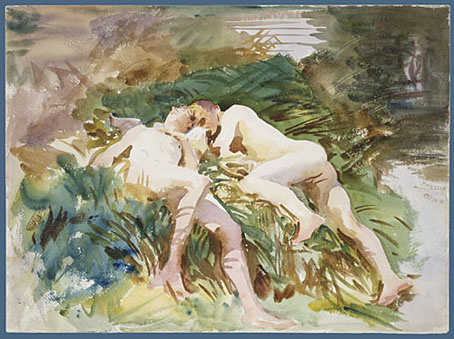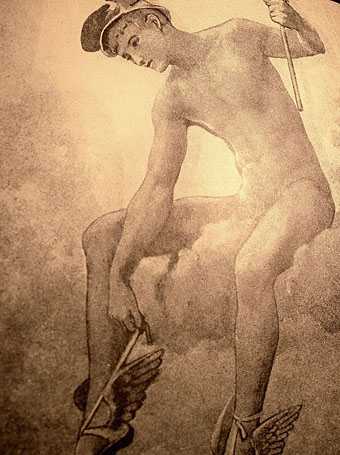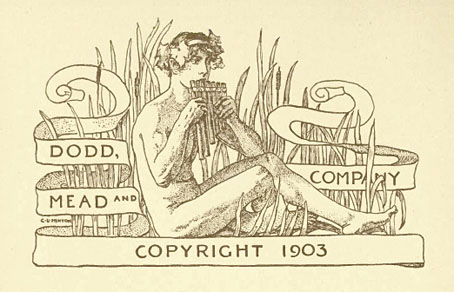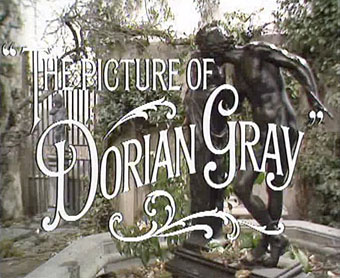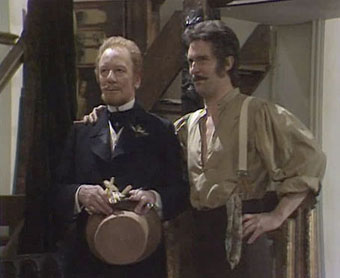Tommies Bathing by John Singer Sargent (1918).
More discoveries from recent image trawls. There’s been plenty of speculation about the sexuality of John Singer Sargent—see here, for example—and this watercolour depiction of relaxing British soldiers would seem to be another of his works which confirms an enchantment with the male form. Lust aside, it’s a remarkable and typically assured sketch in a difficult medium.
Hermes by Will H. Low (1885).
Will Low’s Greek god is from an illustrated edition of Keats’ Lamia, a PDF of which can be found at the Internet Archive although the compression setting is so severe that the drawings are pretty much ruined throughout. This is how Microsoft and Google are safeguarding the world’s artistic heritage… The copy above comes via another Flickr set.
Also at Archive.org, and far better quality, is another book illustrated by Will Low, In Arcady by Hamilton Wright Mabie, a rather insipid parable in a faux-Classical manner which gave the artist an opportunity to fill the pages with piping fauns and naked youths. It wouldn’t be fair to paint Low as another closet Uranian like Sargent solely on account of this handful of drawings; for now he can remain a further victim of our salacious modern sensibilities.
Elsewhere on { feuilleton }
• The illustrators archive

